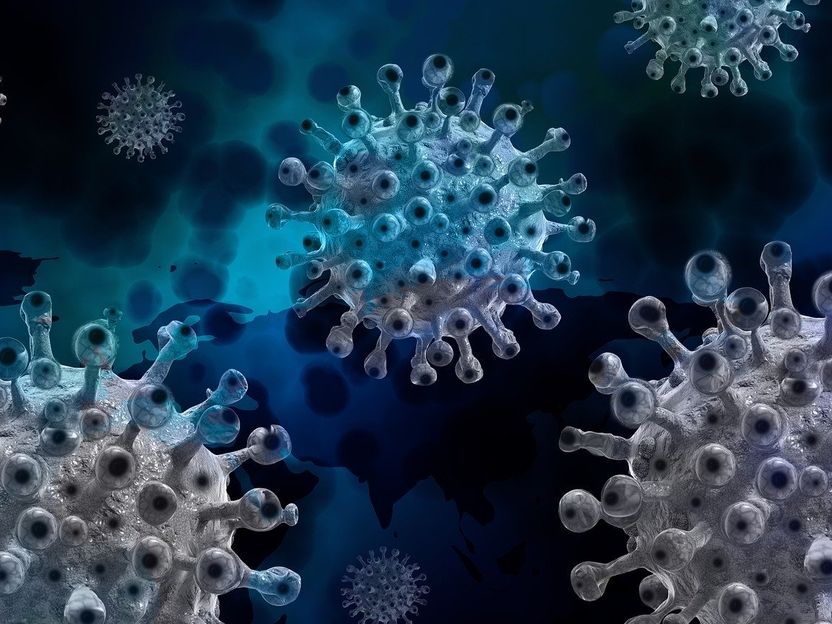Nitric oxide may slow progression of COVID-19
A recent review suggests that nitric oxide has promise as a therapeutic to control the replication and rapid spread of SARS-CoV-2
Nitric oxide treatment can be pivotal in the world's fight against SARS-CoV-2, the coronavirus that causes Covid-19, according to a review from the George Washington University (GW).

Symbolic image
geralt, pixabay.com, CC0
Nitric oxide is an antimicrobial and anti-inflammatory molecule with key roles in pulmonary vascular function in the context of viral infections and other pulmonary diseases. In SARS-CoV-1 infection, which led to the outbreak of SARS (severe acute respiratory syndrome) in 2003, nitric oxide inhibited viral replication by cytotoxic reactions through intermediates such as peroxynitrite. It is one of several potential COVID-19 treatments included in the U.S. Food and Drug Administration's emergency expanded access program.
"Nitric oxide plays key roles in maintaining normal vascular function and regulating inflammatory cascades that contribute to acute lung injury (ALI) and acute respiratory distress syndrome (ARDS)," said Adam Friedman, MD, interim chair and professor in the Department of Dermatology at the GW School of Medicine and Health Sciences and co-senior author of the review. "Interventions that are protective against ALI and ARDS can play a critical role for patients and health systems during the pandemic."
Coronaviruses are RNA viruses that primarily infect birds or livestock, but can mutate to be highly infectious and lethal in humans. There is currently no registered treatment or vaccine for COVID-19. The absence of a specific treatment and the high mortality rate of the virus dictate an urgent need for therapeutics that may control the replication and rapid spread of the virus.
The team, led by first author Nagasai Adusumilli, MBA, a fourth-year medical student at the GW School of Medicine and Health Sciences, reviewed data from between 1993 and 2020 on the pathogenesis of coronaviruses and the use of nitric oxide as a treatment for respiratory illness. The authors highlight the potential for inhaled nitric oxide contributing to better clinical outcomes and alleviating the rapidly rising strain on health care capacity due to COVID-19.
As groups continue to publish more results with their respective nitric oxide platforms, the team recommends that dosing and protocol variations should be examined in evaluating the studies.
"With the emergence of COVID-19 as a pandemic with the ability to overwhelm the body and our health care infrastructure, patients have a pressing need for effective agents that can slow the disease in their bodies and in their communities," Friedman said.
The authors suggest that if nitric oxide's efficacy is illustrated for COVID-19, its use as a treatment can be pivotal in the fight against the pandemic.




















































